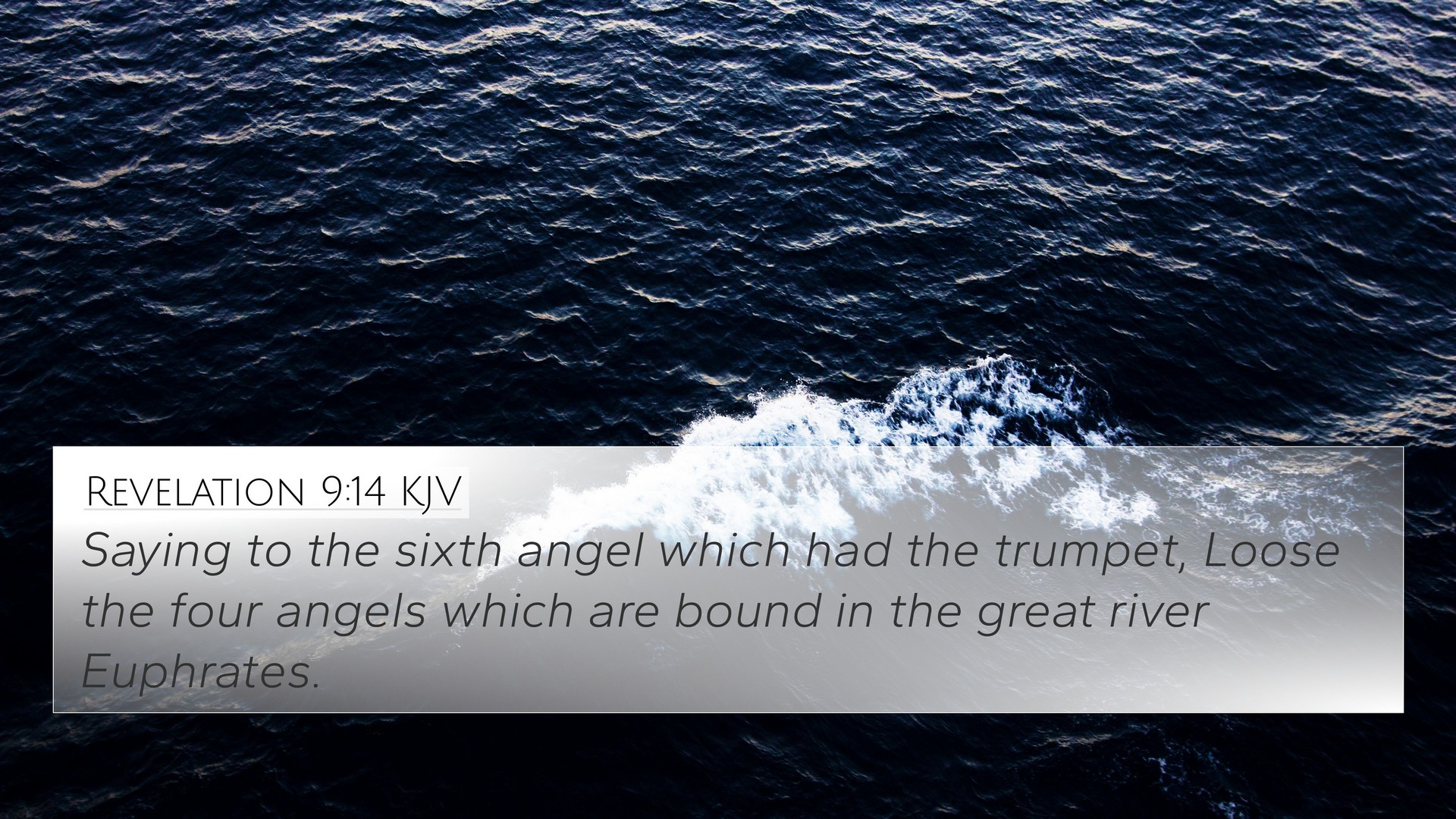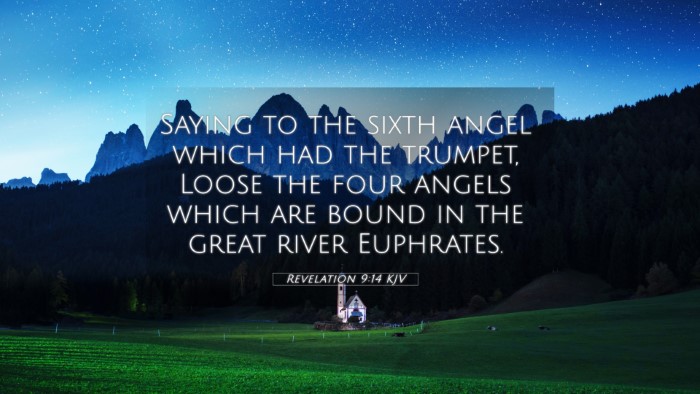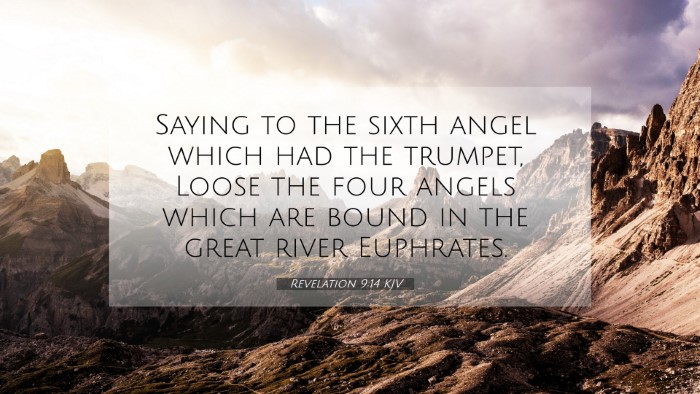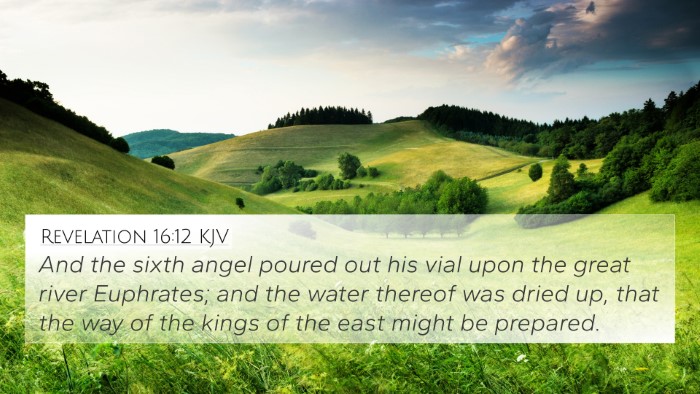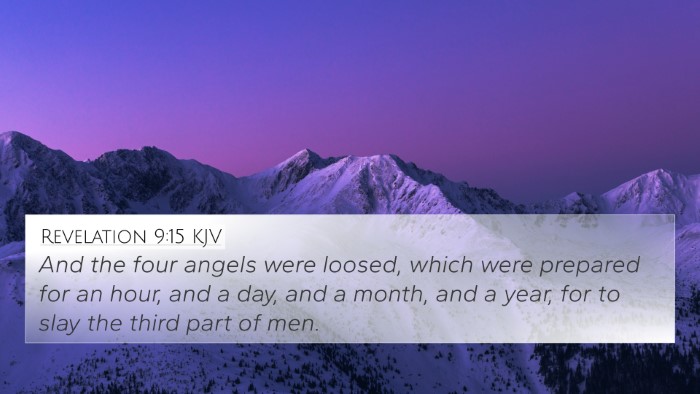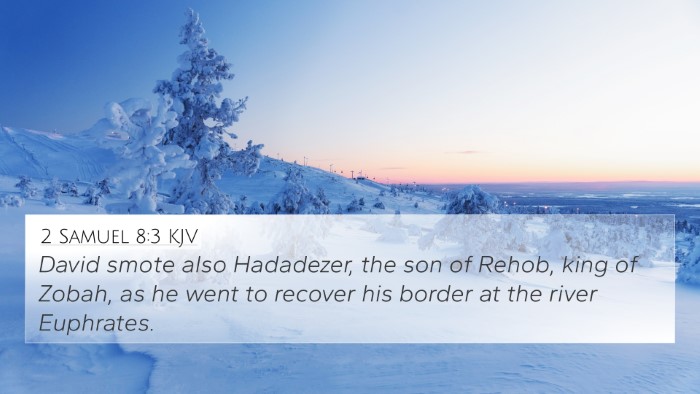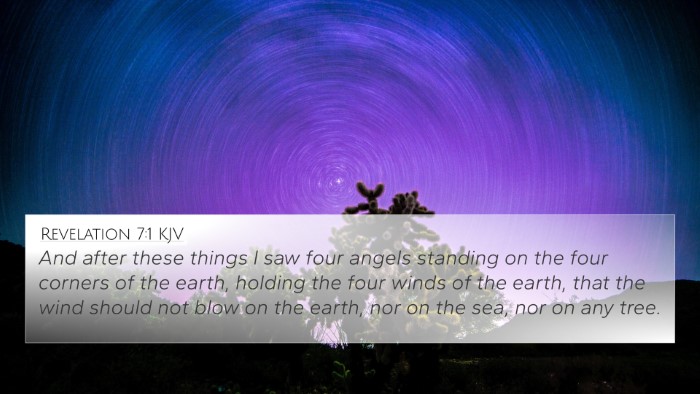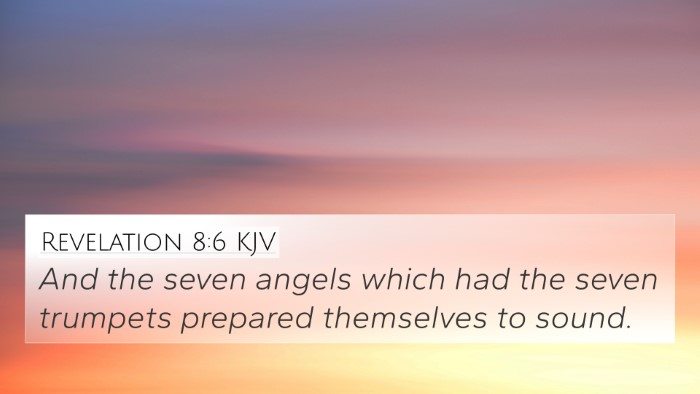Understanding Revelation 9:14
Revelation 9:14 states: "Saying to the sixth angel which had the trumpet, Loose the four angels which are bound in the great river Euphrates." This verse is a part of a series of apocalyptic messages revealing God’s plans for judgment and the ultimate victory over evil.
Summary of Insights from Public Domain Commentaries
Insights from Matthew Henry, Albert Barnes, and Adam Clarke highlight the following themes:
- The Significance of Angels: Angels often serve as agents of God's will, and their release is indicative of divine judgment. They are bound, indicating their prior activity and now delayed role in the unfolding of God's plans.
- The Euphrates River: The reference to the Euphrates holds historical and symbolic significance, as it has been a boundary for civilizations and could represent a demarcation between God's people and the forces of evil.
- Divine Timing: The loosening of the angels suggests a specific divine timing when judgment is to be executed. This emphasizes that all events occur according to God’s plan and schedule.
- Consequences of Rejection: The release of the angels heralds an impending judgment for those who have rejected God, mirroring themes seen throughout the prophetic texts of the Old Testament.
Connections to Other Bible Verses
Revelation 9:14 connects with several other scripture passages, illustrating the thematic continuity of judgment and divine intervention in biblical texts:
- Revelation 7:1: Discusses the four angels holding back the winds of the earth, parallel to the angels in 9:14 being released—a common motif of the control of natural elements.
- Isaiah 27:1: "In that day, the Lord will punish with his sword—his fierce, great and powerful sword—the Leviathan, the gliding serpent; Leviathan, the coiling serpent; he will slay the monster of the sea." This verse shows the theme of divine judgment over mythical creatures, akin to the judgment portrayed in Revelation.
- Ezekiel 38:2: "Son of man, set your face against Gog, of the land of Magog, the chief prince of Meshech and Tubal; prophesy against him." This reference can be connected in terms of prophetic declarations akin to those seen in Revelation.
- 2 Peter 2:4: “For if God did not spare angels when they sinned, but sent them to hell, putting them in chains of darkness to be held for judgment.” This verse highlights the fate of angels who rebel against God, correlating with the themes in Revelation.
- Jeremiah 46:10: “But that day belongs to the Lord, the LORD Almighty—a day of vengeance, for vengeance on his foes.” This is a significant connection emphasizing God’s eventual judgment on nations and forces opposing Him.
- Matthew 24:31: “And he will send his angels with a loud trumpet call, and they will gather his elect from the four winds, from one end of the heavens to the other.” This demonstrates a contrast between angels executing judgment versus gathering God's people.
- Hebrews 1:14: “Are not all angels ministering spirits sent to serve those who will inherit salvation?” This verse denotes their role as interveners in human affairs, which is reversed in the judgment context of Revelation.
Comparative Analysis of the Verses
This verse indicates the unfolding of apocalyptic events and aligns with a significant focus on judgment found throughout the scriptures. The bonds and the release of the angels emphasize how God retains control over all spiritual beings, withholding or unleashing them based on His divine plan.
Cross-Referencing Biblical Texts
Utilizing tools for Bible cross-referencing can deepen understanding and provide broader insights into Revelation 9:14:
- Bible Concordance: Helps find related key terms such as “angel,” “judgment,” and “Euphrates.”
- Bible Cross-Reference Guide: Identifies similar contexts in other prophetic texts.
- Cross-Reference Bible Study: Engages in thematic studies comparing judgment narratives.
- How to Use Bible Cross-References: Methodologies for exploring interconnected verses in the context of prophetic messages.
- Bible Reference Resources: Utilizing commentaries and lexicons that provide historical and theological background.
- Bible Chain References: Tracing themes that outline God’s sovereignty over creation.
Conclusion
Revelation 9:14 signifies a profound moment in eschatological literature, marking the beginning of a series of events that reveal the seriousness of God’s impending judgment. The connections and thematic analysis with other Bible verses enrich the understanding of divine justice and mercy. For those seeking to explore the deeper meanings of scripture, engaging with cross-references and thematic studies will yield a more enriched biblical dialogue.
